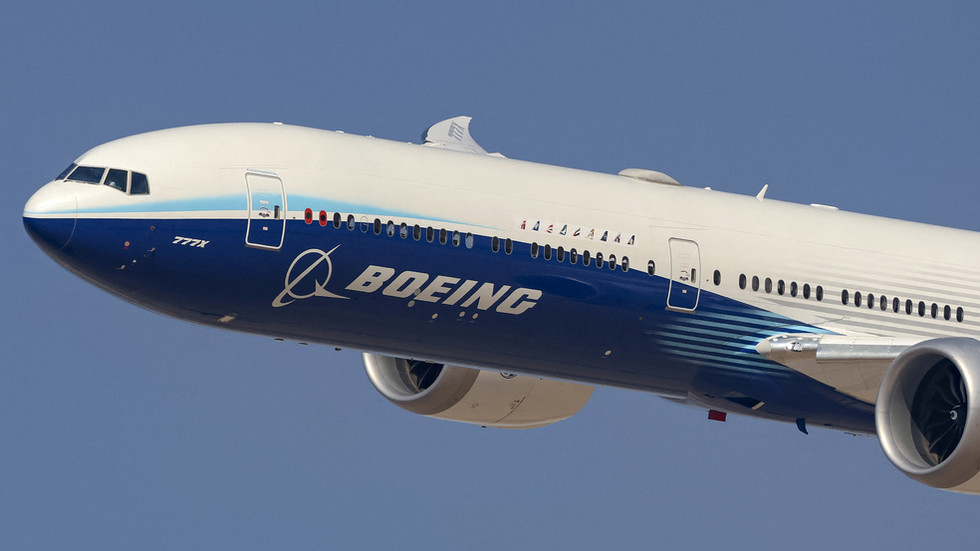The US Federal Aviation Administration (FAA) issued a directive earlier this year warning that a defect in Boeing’s 777 airplanes could cause “fire or explosion” if unaddressed. It is unclear whether the plane’s operators have addressed the issue.
The directive was issued in March, while the FAA solicited comments until earlier this month. Amid a series of safety incidents involving Boeing aircraft, the Daily Mail reported on the publicly-viewable document on Wednesday.
According to the FAA, a metal plate attached to a fuel tank vent on the wings of the 777 was installed without an electrical bond, meaning it could potentially accumulate static electricity and cause a “fire or explosion” in the jet’s fuel tanks.
Some 292 777s registered in the US could be at risk, the directive warned. All variants of the 777, from the base model 777-200 to the long-range 777-300ER, are affected.
Boeing dismissed the Daily Mail’s report, insisting that the proposed directive is part of a “standard regulatory process that has helped ensure air travel is the safest form of transportation.”
“This is not an immediate safety of flight issue,” the company stated. “There are multiple redundancies designed into modern commercial airplanes to ensure protection for electromagnetic effects. The 777 fleet has been operating for nearly 30 years, and has safely flown more than 3.9 billion passengers.”
The 777 is the world’s most built widebody airliner, with nearly 1,800 delivered to operators around the world since 1995. It has been involved in 31 accidents or incidents, a relatively better safety record than its smaller predecessor, the 767, which was involved in 67 accidents out of around 1,300 aircraft built.
READ MORE:
Boeing investigated over falsified plane records
Boeing’s overall approach to safety has come under scrutiny in recent years. Two deadly crashes in 2018 and 2019 grounded its entire fleet of short-haul 737 MAX airplanes, while this year has seen multiple incidents took place, starting with a door panel blowing off mid-air on a 737 MAX 9 operated by Alaska Airlines in January. The US Department of Justice is still considering prosecuting Boeing over the 2018 and 2019 crashes, which killed nearly 350 people and were caused by an errant pitch control system that the company had not informed pilots about.
You can share this story on social media:























Discussion about this post